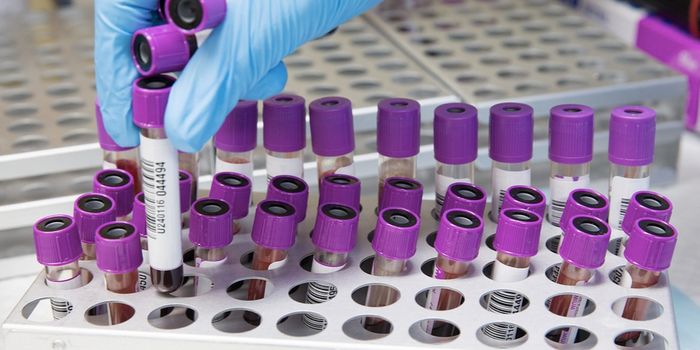Improving Cancer Immunotherapy While Reducing Autoimmune Side Effects
Immunotherapy aims to make a patient's immune cells better at fighting cancer. The immune system has to be used carefully, however; overactive immunity can be extremely dangerous for the body, so immune cells have to be carefully regulated. Some immune cells, like T cells, have checkpoints that tamp down the immune response. Checkpoint inhibitors block them so the T cells will kill cancer cells. While this can be an effective way to fight cancer for nearly a third of patients, people sometimes develop an autoimmune disorder that can be fatal.
Researchers have now found that disrupting the association between cancer cells and a type of immune cell makes it easier to kill cancer cells than current immunotherapies. The findings have been reported in JCI Insight.
"I'm interested in how cancer cells interact with certain immune cells to control the immune response to cancer, and how the immune system interacts with organs and tissues to cause autoimmune diseases," said senior study author David Fox, M.D., a rheumatologist and cancer researcher at the University of Michigan Rogel Cancer Center. "How can researchers intervene to alter these interactions and simultaneously destroy cancers while preventing autoimmunity?"
Drugs that target a cell receptor called CD6 may be an effective treatment for treat, lung, or prostate cancer; one such drug is the anti-CD6 antibody, UMCD6.
In an immunocompromised mouse model that then received a transfer of human immune cells, tumors disappeared almost completely in only a week after an injection of UMCD6, which may also help prevent autoimmune diseases. Mice that don't carry CD6 proteins on their immune cells are known to suppress autoimmune disorders.
When an antibody attaches to CD6, the receptor is pulled into the cell. In a mouse model, this absence of CD6 treats symptoms of rheumatoid arthritis, multiple sclerosis, and uveitis, three different human inflammatory diseases. This work has shown that UMCD6 treatment significantly reduces autoimmunity and organ damage in a mouse model.
"When UMCD6 binds to CD6 on these specific immune cells, it creates a CD6 cluster that dives into the interior of the cell, allowing no CD6 to remain on the cell surface. This causes the killer T cells to seek out and destroy the cancer cells much more aggressively. At the same time, removing CD6 from the surface of CD4 cells, with the same UMCD6 antibody, controls and limits the activity of the CD4 cells, which are the cells that instigate autoimmune diseases," Fox explained.
"Until now, we haven't been able to get immune cells to kill cancer cells without triggering an immune response that can be harmful to patients. What we've created here completely challenges prevailing concepts," he added.
A lot more work will be needed before clinical trials in humans can begin, however.
"If UMCD6 is proven to successfully treat cancer and prevent recurrences, this could overcome the major current limitations to checkpoint inhibition success in human cancer immunotherapy," said Fox. "I look forward to seeing what lies ahead in this field of research."
Sources: AAAS/Eurekalert! via Michigan Medicine - University of Michigan, JCI Insight









